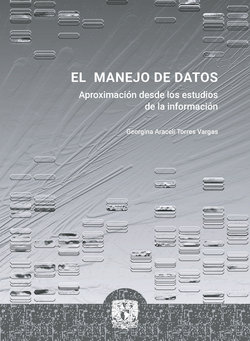Читать книгу El manejo de datos. Aproximación desde los estudios de la información - Georgina Araceli Torres Vargas - Страница 10
CONCLUSION: OPPORTUNITIES AND CHALLENGES FOR THE LIBRARY FIELD
ОглавлениеThe role of academic libraries in leading and developing RDM services emerged as an important theme in the IFLA Data Curation project and in prior research (Cox & Pinfield 2014; Cox et al. 2017; Tenopir et al. 2015; 2017). The library and information science (LIS) field can take advantage of the demand for information professionals with knowledge of the research process and skills in managing and curating data. The report prepared for the European Open Science Cloud points to a shortage of data experts, estimating that half a million specialists with expertise in managing data will be needed to support researchers in the European Union (Ayris et al. 2016). The new data-intensive research environment and the global Open Science movement offer opportunities to expand library services beyond the traditional service roles in reference and instruction. Librarians can actively participate in the research process and contribute their unique expertise in information organization, metadata, and archiving. RDM services can also utilize library experience in outreach, open access advocacy, and training.
RDM also poses a set of new challenges for libraries as the field is still in an emergent phase. The development of RDM services at academic libraries involves restructuring and substantial investment in staff and resources. It requires building technical infrastructure for data storage and publishing and forming collaborative partnerships with multiple stakeholders on campus. The model of academic libraries serving as a center of RDM services is prevalent but not the only one. As the findings of the IFLA Data Curation project indicate, the organizational models have been evolving and new approaches are emerging where librarians are embedded in research projects or are becoming partners in campus-wide networks or research data services centers. The new models require strong collaborative skills and building bridges between a library, information technology unit, legal services, and other departments on campus.
The roles, responsibilities, and competencies of RDM librarians are not clearly defined and the practices continue evolving. RDM requires diverse expertise, not only in metadata and information organization standards but also technical skills. RDM creates a demand for information professionals with skills in managing and curating data and with an understanding of the scientific process and research methods. The findings of the IFLA Data Curation project point to some competency gaps in the traditional LIS education, especially in technical training and research methods. RDM as a new area of responsibility for librarians and information professionals requires a combination of technical, instruction, research, and digital archiving skills. Academic librarians have expertise in many areas but also need to acquire new skills and knowledge through expanded professional development. LIS education could also respond to the demand for data experts by developing new programs and concentrations in RDM.
